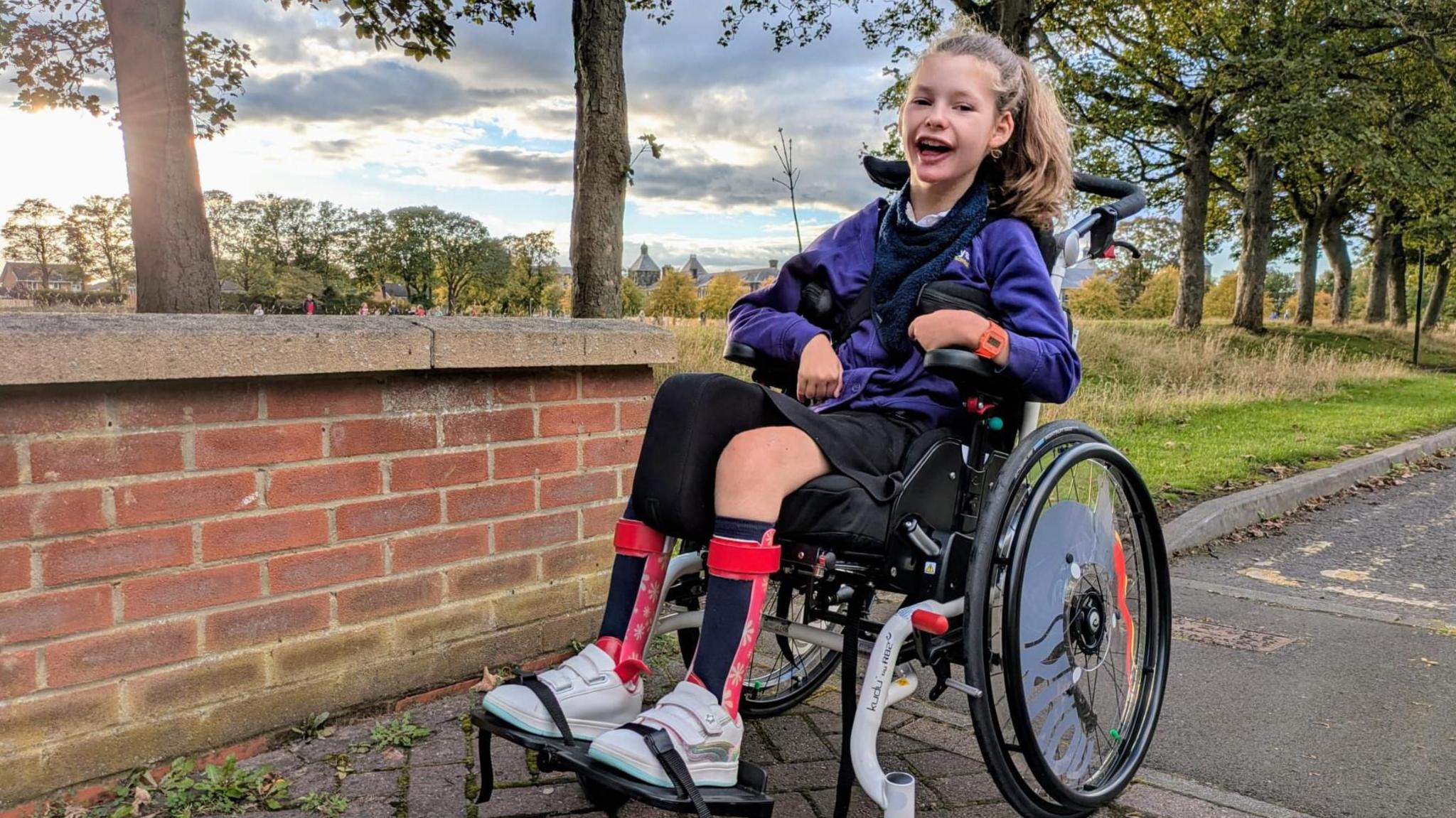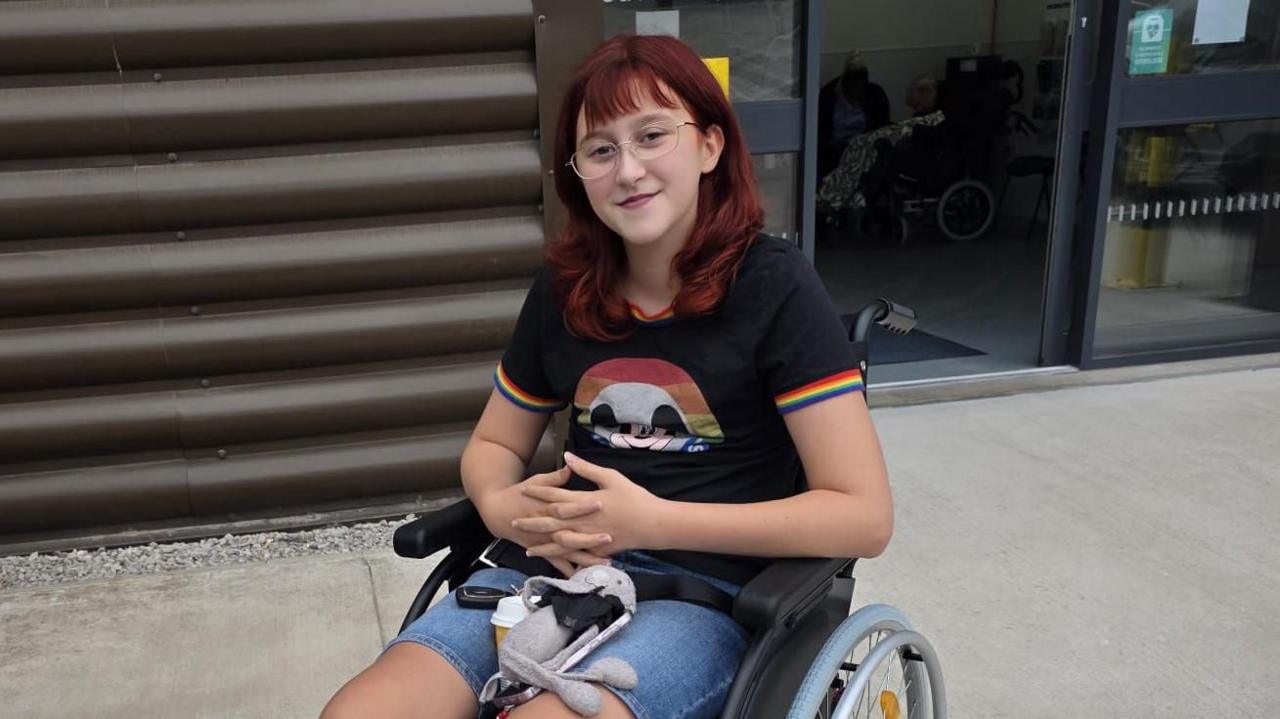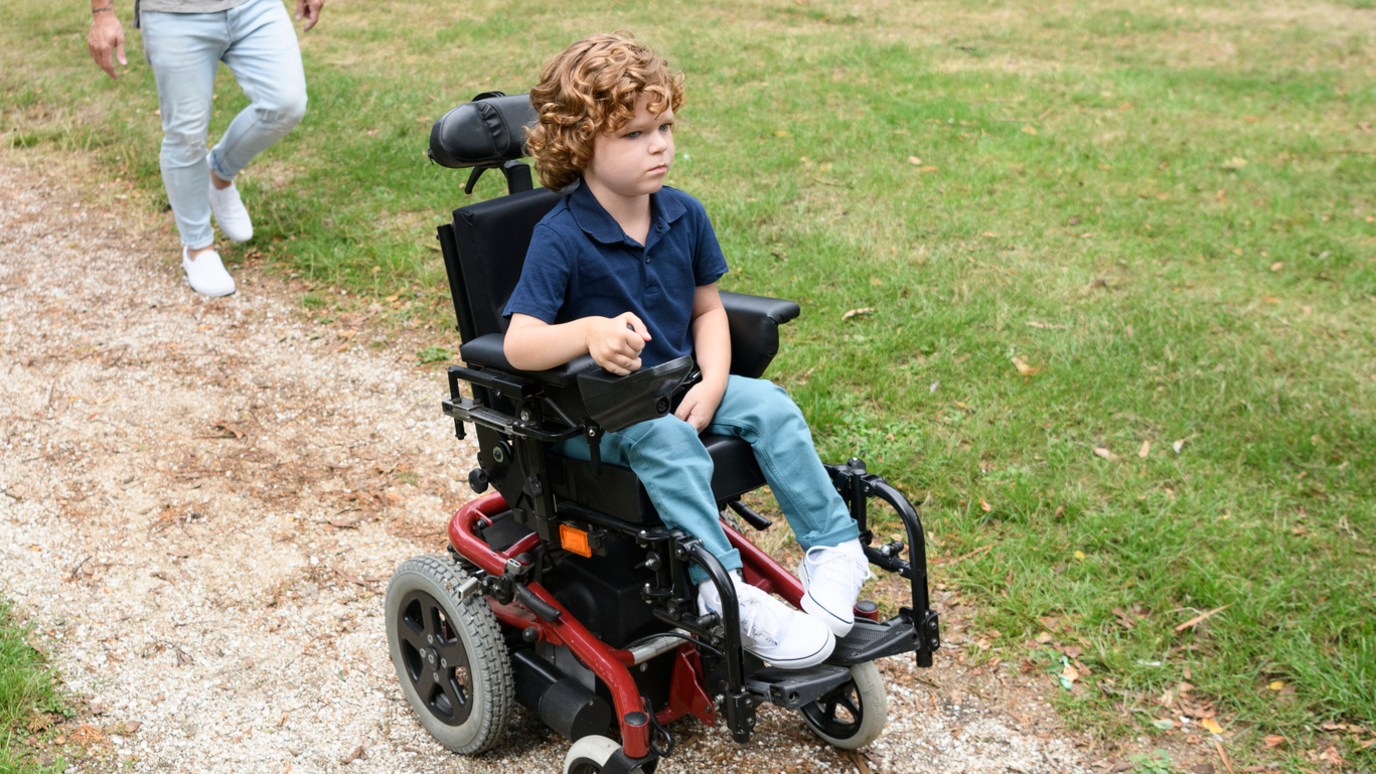Why hundreds of kids are waiting for wheelchairs

Wren waited more than a year for her manual wheelchair through the NHS, but was not eligible for a powered one through the service
- Published
More than a thousand disabled children across the UK are waiting for wheelchairs and mobility equipment, according to a charity.
Whizz Kidz, the UK's leading charity for supporting young people with specialist wheelchairs, says more money is needed to help them because of "huge demand".
It says the NHS having to choose carefully how it spends its money, means that more children are coming to them for help.
However with over a thousand children on its waiting list, the charity says it needs help raising more more money, or it can't take on new applicants.
Whizz Kidz says the average specialist wheelchair costs £4,800 but giving young users the right chair gives them freedom and independence, builds their confidence and helps them become more engaged with children their own age.
'You should never judge someone for how they use their wheelchair' Video, 00:01:26
- Published1 March 2024
Find out about 'BMX in a wheelchair'
- Published24 September
'I want playgrounds that everyone can enjoy'
- Published21 January 2023
Ivy: I don't have any independence

Ivy says a powered wheelchair would give her more independence
Ivy, who is 12, loves shopping, gaming and spending time with her friends but she often relies on friends and family to help out.
Her disability means she can walk, but only for short distances, and she gets tired.
She was able to get a manual wheelchair - which is pushed or pulled - through the NHS, but she can't get a powered chair.
She says this affects her independence: "I have to have my friends push my manual wheelchair around from lesson to lesson... It's not fair.
"I get left out when I'm in the wheelchair because obviously I can't take myself around."
Ivy started secondary school in 2024 and applied to Whizz Kidz for help, but the huge demand means she is still waiting.
'We want to keep Wren's options open for whatever she wants to do'

Whizz Kidz gave Wren (centre) a powered wheelchair to use at school
Like Ivy, 11-year-old Wren was not able to get a powered wheelchair through the NHS and uses an NHS manual chair at home.
Wren has cerebral palsy, which affects her speech, her limbs and her posture, meaning she needs help with everyday activities.
But according to her mum Anna, Wren's chair is very heavy, and difficult for her to move easily.
But through Whizz Kidz, she has a powered wheelchair to use at school which allows her to be more independent.
"She has great fun whizzing around," says her mum, but added that as Wren grows they want to keep her options open "for whatever she wants to do".
What does the NHS say?

The average specialist wheelchair costs around £4,800
BBC Disability journalist Munaza Rafiq asked the NHS in each part of the UK for their response to the situation.
The Department for Health Northern Ireland says that more than 8 out of 10 people (87%) who need wheelchairs get them within 13 weeks.
In England users have a budget to pick a wheelchair for their needs, but NHS England added that it was working to deliver "better services that improve access and experiences for wheelchair users".
In Scotland a spokesperson said that rules for providing children's wheelchairs has remained unchanged since 2014, and the government was committed to protecting vital services.
The Welsh government has not yet responded.
